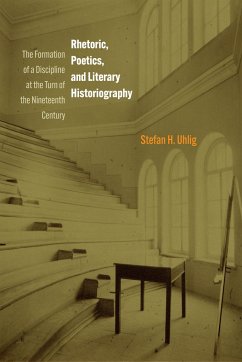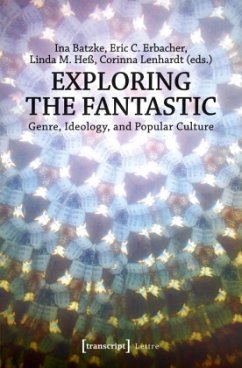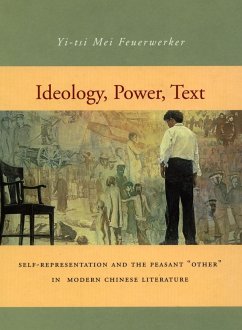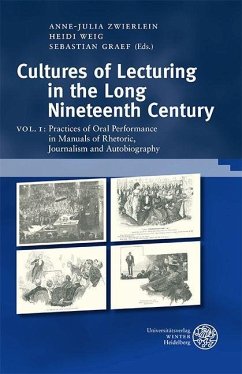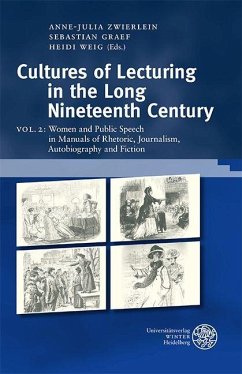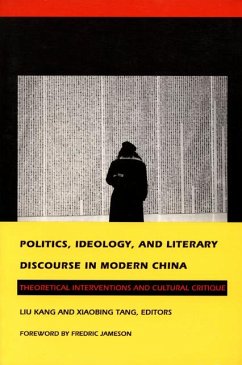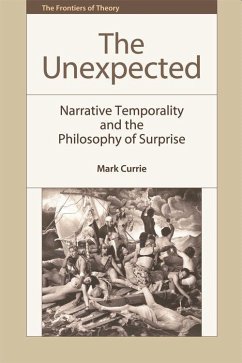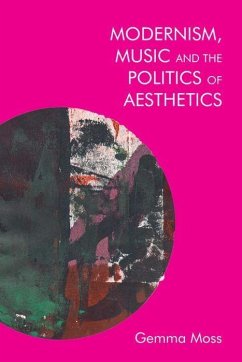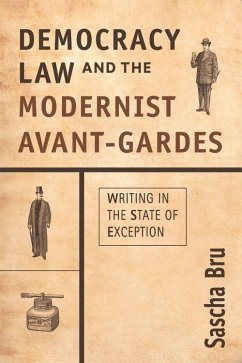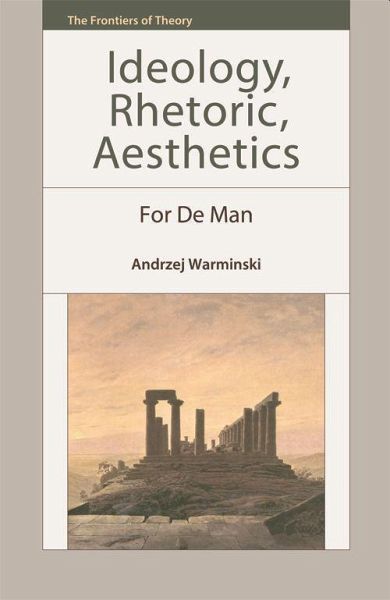
Ideology, Rhetoric, Aesthetics
For de Man
Versandkostenfrei!
Versandfertig in über 4 Wochen
108,99 €
inkl. MwSt.
Weitere Ausgaben:

PAYBACK Punkte
54 °P sammeln!
'The publication of this book is a historical event. Paul de Man (and Warminski) mean by the term "event" something that happens, something that changes history. This book does that with unparalleled intelligence, learning, and insight. It develops and deploys to wonderful effect a specifically Warminskian way of doing rhetorical readings.' J. Hillis Miller, University of California, Irvine 'An unavoidable book: it meets the challenge of reading Paul de Man unflinchingly and, more importantly, without compromising de Man's practice of rhetorical reading and writing. Ideology, Rhetoric, Aesthet...
'The publication of this book is a historical event. Paul de Man (and Warminski) mean by the term "event" something that happens, something that changes history. This book does that with unparalleled intelligence, learning, and insight. It develops and deploys to wonderful effect a specifically Warminskian way of doing rhetorical readings.' J. Hillis Miller, University of California, Irvine 'An unavoidable book: it meets the challenge of reading Paul de Man unflinchingly and, more importantly, without compromising de Man's practice of rhetorical reading and writing. Ideology, Rhetoric, Aesthetics stands alone in offering a rigorous explication, extension, and counter-signing of de Man's own signature-and signature intervention-within literary studies.' Kevin Newmark, Boston College Explicates and extends Paul de Man's late project of a critique of aesthetic ideology After a reading of de Man's work in all its rigour - and taking in the aesthetic theory of Kant, Schiller, and Hegel - the book goes on to uncover a 'material moment' in Hegel's Phenomenology of Spirit that lives on in Marx and in the Marxist tradition. The book also elucidates de Man's critical reading of Heidegger on the example of Hölderlin, a moment essential for de Man's shift to the question of rhetoric and then to the question of ideology. It ends with a reading of Derrida's 'last' text on de Man and its uncanny self-inscription in Rousseau's episode of the stolen ribbon. This book is a major contribution to the understanding of a crucial but much misunderstood (and much repressed) moment - and figure - in the recent history of 'theory'. It wagers that the kind of reading it represents is needed on the contemporary critical scene, and that rather than harkening back to a past over and done with, it may open up or point to a different future. Andrzej Warminski is Professor of English at the University of California, Irvine. He has published Material Inscriptions: Rhetorical Reading in Practice and Theory with Edinburgh University Press (2013). He is also the author of Readings in Interpretation: Hölderlin, Hegel, Heidegger and the editor of Paul de Man's Aesthetic Ideology. Cover image: The Temple of Juno in Agrigento, 1828-1830, Caspar David Friedrich (1774-1840). Cover design: [EUP logo] www.euppublishing.com




